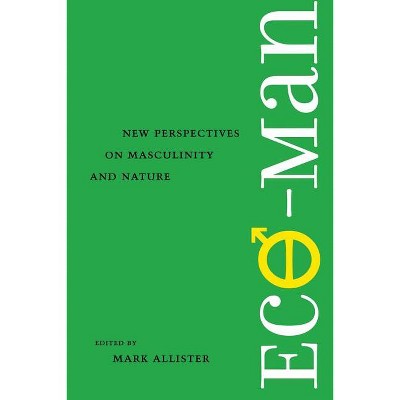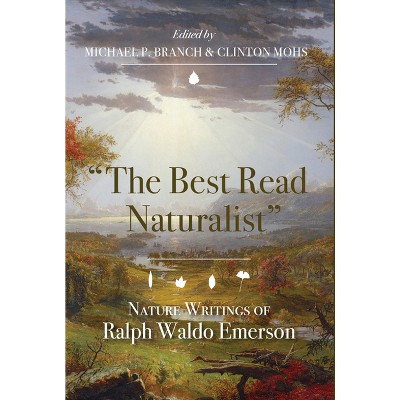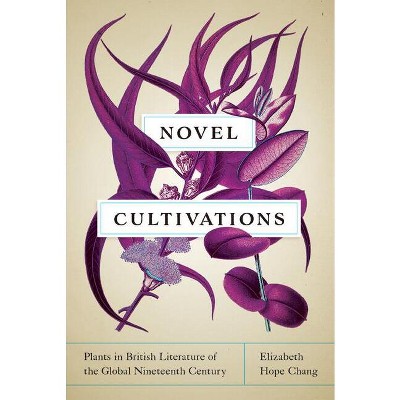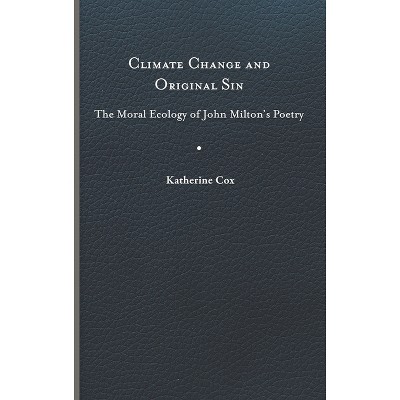Refiguring the Map of Sorrow - (Under the Sign of Nature) by Mark Allister (Paperback)

About this item
Highlights
- Recent decades have witnessed an explosion of interest in both autobiography and environmental literature.
- About the Author: Mark Allister is Associate Professor of English and Director of Writing at St. Olaf College.
- 199 Pages
- Literary Criticism, American
- Series Name: Under the Sign of Nature
Description
About the Book
As he focuses on the many ways in which humans connect--often deeply and urgently--to animals or the land, Allister vastly extends our understanding of relationalautobiography.Book Synopsis
Recent decades have witnessed an explosion of interest in both autobiography and environmental literature. In Refiguring the Map of Sorrow, Mark Allister brings these two genres together by examining a distinct form of grief narrative, in which the writers deal with mourning by standing explicitly both outside and inside the text: outside in writing about the natural world; inside in making that exposition part of the grieving process.
Building on Peter Fritzell's thesis in Nature Writing and America that the best American nature writing blends Aristotelian natural history and Augustinian confession, this work of literary interpretation draws on psychoanalytical narrative theory, studies of grieving, autobiography theory, and ecocriticism for its insights into how nature writing can become an autobiographical, healing act.
Allister examines works by Terry Tempest Williams, Sue Hubbell, Peter Matthiessen, Bill Barich, William Least Heat-Moon, and Gretel Ehrlich in order to demonstrate the difficulty of hearing nature speak, and of translating terrain and self into language and form. As he focuses on the many ways in which humans connect--often deeply and urgently--to animals or the land, Allister vastly extends our understanding of "relational" autobiography.
Review Quotes
There is profound merit in locating the field of nature writing, and particularly the authors and works emphasized in this study, within the tradition of autobiographical nonfiction and, still more specifically, within the genre of healing narratives. Mark Allister's Refiguring the Map of Sorrow is a genuinely excellent contribution to the study of contemporary American literature.
--Scott Slovic, University of Nevada, editor of Getting Over the Color Green: Contemporary Environmental Literature of the SouthwestThis balanced contribution to ecocriticism examines autobiographical works that focus on grief, the mourning process, and the interaction of the human world with the world of nature. Comprising close readings of Terry Tempest Williams's Refuge (1991), Bill Barich's Laughing in the Hills (1980), Gretel Ehrlich's The Solace of Open Spaces (1985), Peter Mathiessen's The Snow Leopard (1978), Sue Hubbell's A Country Year (1986), and William Least Moon Heat's Blue Highways (1982), the volume offers critical insight into autobiography as Allister examines theoretical and artistic implications. Allister is interested in how these authors work through their grief, and he finds that they do so by extending themselves into the natural world and into the built environment. He applies an ecological term, ecotone, to the works he studies, defining them as border cases in which major perspectives of the human and natural worlds meet. In this regard, this work follows in the critical footsteps of centrally located ecocriticism as defined in The Ecocriticism Reader: Landmarks in Literary Ecology, ed. by Cheryll Glotfelty and Harold Fromm (1996): the 'desire to articulate the intricate webs of relations in the natural world--one foot in literature and the other on land.' Highly recommended for upper-division undergraduates through faculty.
-- "CHOICE"About the Author
Mark Allister is Associate Professor of English and Director of Writing at St. Olaf College.
Shipping details
Return details
Trending Poetry











